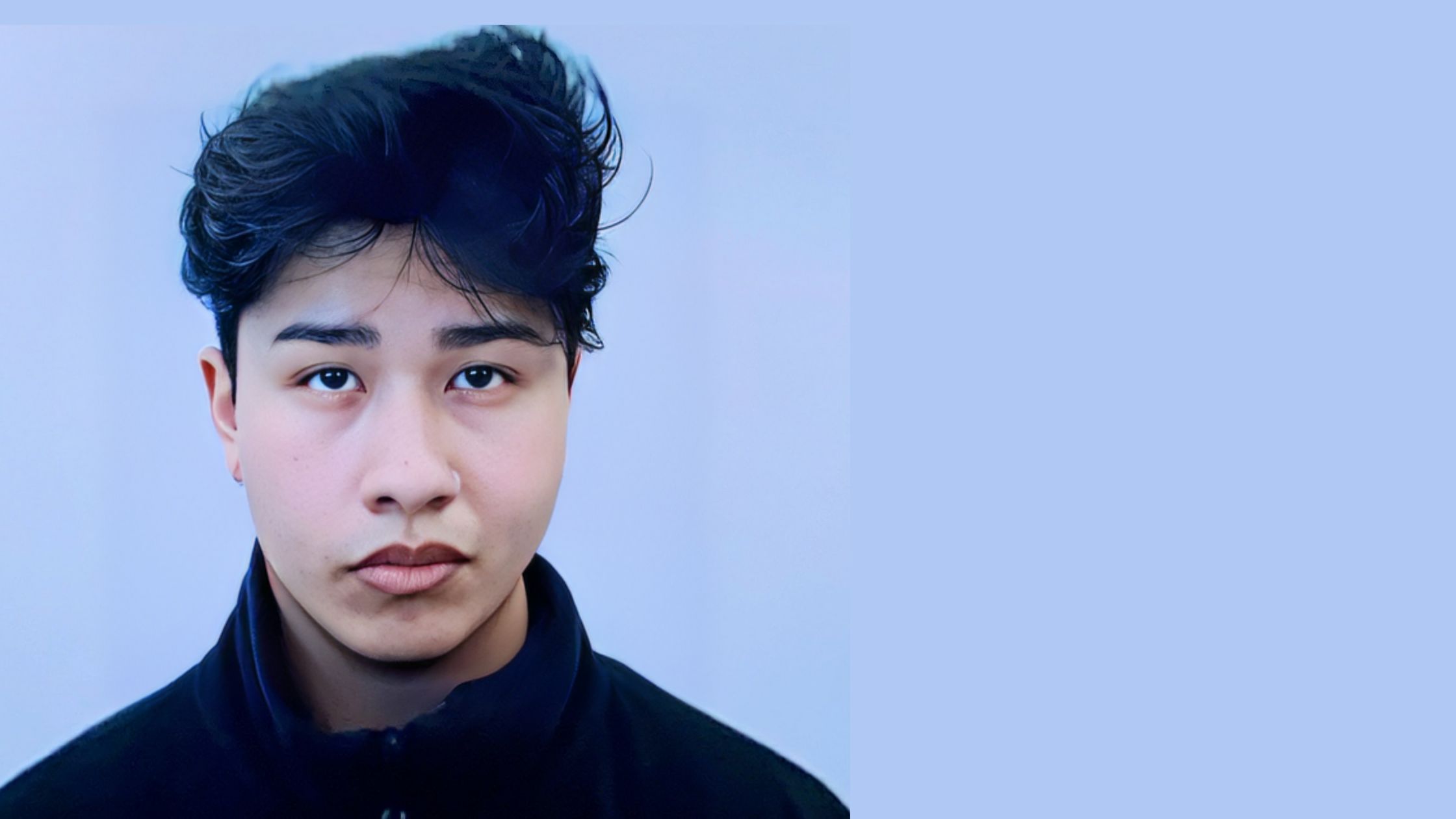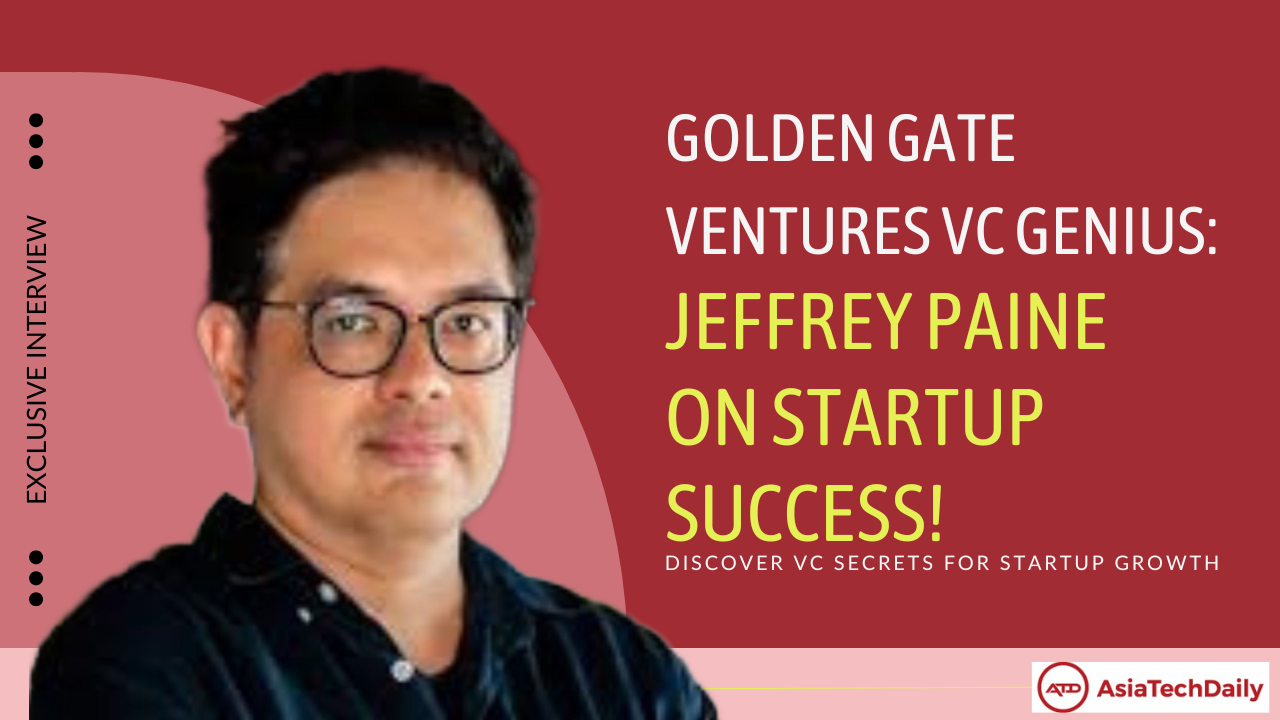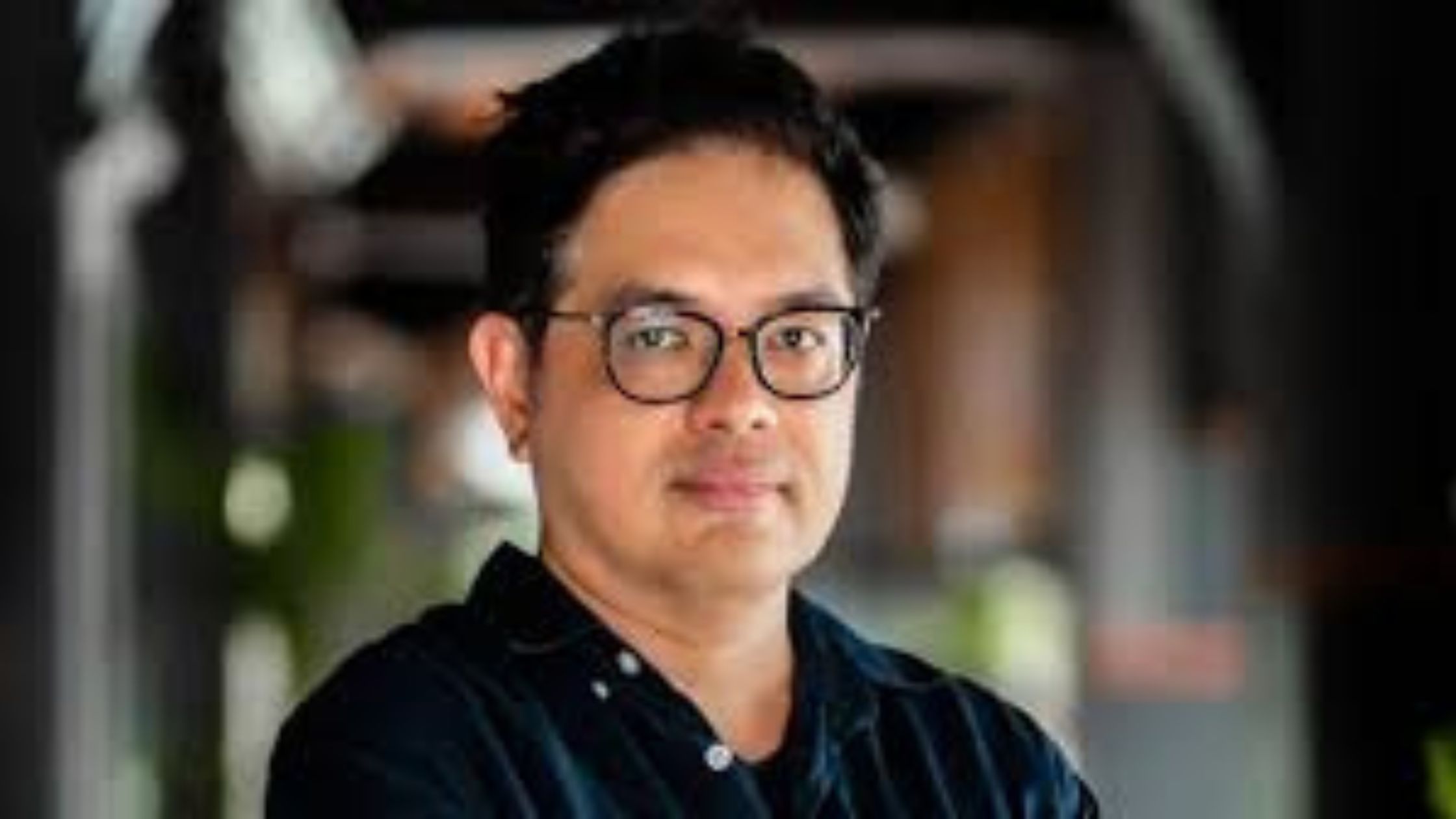AsiaTechDaily – Asia's Leading Tech and Startup Media Platform

Dr. Finian Tan, Vickers Venture Partner – A Name Par Excellence In Venture Capital
Dr. Finian Tan is a Singapore based venture capitalist. He is the founder and Chairman of a renowned international venture capital firm, Vickers Venture Partner. The company has its presence in Singapore, New York, Shanghai, San Diego, Hong Kong, Kuala Lumpur, and San Francisco.
Dr. Tan has played major roles in many of Vicker’s portfolio companies. Before he joined Vicker Venture Partner, he was Managing Director and head of CSFB (Credit Suisse First Boston) group of banks in Malaysia and Singapore. Prior to working with CSFB, Dr. Tan has also served as Managing Director of Draper Fisher Jurvetson Eplanet, a Silicon Valley venture capital firm. He was in charge of their Asia Pacific operations. During his tenure he discovered Baidu which was a small startup with no revenue and just one customer, however, he led all investment rounds into Baidu, and remained its biggest backer until IPO.
During his early career stage, Dr. Tan has also worked with Goldman Sachs for a period of three years, as a Vice President at J.Aron and Co. (Singapore) and then moved on to become Regional Director and Head of the company. He has also served Singapore Government as the Deputy Director of the Ministry of Trade and Industry.
Dr. Finian Tan obtained his Doctorate degree from Cambridge University. He received the Shell Scholarship and was the first Singaporean to receive the award. He has also been the President of the Cambridge University Singapore and Malayan Society and also represented the university in Squash. Dr. Tan received his B.SC degree in engineering from the University of Glasgow.
Read on to know more about Dr. Finian Tan’s journey so far as a venture capitalist, his investment strategies and philosophy.
What background and domain expertise do you have? And what made you decide to become an investor?
Dr. Finian Tan: I received my PhD in Engineering from Cambridge University. After graduating I worked with the university’s engineering department as an Assistant Director of Research and then returned to Singapore. I first pursued a career in oil trading with Shell in Singapore and Japan before joining Goldman Sachs in Singapore.
In 1997, I was asked to join the Singapore government as Deputy Secretary in the Ministry of Trade and Industry. That was an eye-opener for me and also a first for the country – as it marked the first time that Singapore had appointed someone from the private sector at that level. Part of my role was to help turn Singapore into the Silicon Valley of the East.
I made three recommendations: a US$1 billion fund to jump-start the VC industry; building a science hub; and forming an inter-ministry committee to change rules and regulations to allow startups to thrive.
The cabinet approved all three strategies and made me the chairman of these initiatives. That brought me naturally to VC which is essential in terms of driving start-ups and innovation. I fell in love with it because the industry combines tech and finance. This was perfect on account of my finance background with Goldman Sachs and my tech training at Cambridge. As such it was a combination of my education, my professional background and my time in government that helped me develop the perspectives and insights which help develop a long-term vision and to invest in startups that are trying to change the world.
It must have been challenging for you when you raised your first and second funds, while still being a young VC. Could you share some of these challenges with me?
Dr. Finian Tan: After finishing my stint with the government, I became a founding partner for Asia at a famous Silicon Valley firm, Draper Fisher Jurvetson and ePlanet Ventures. My first investment was US$7.5 million into a young startup called Baidu in China. Five years later, it debuted on Nasdaq as the best performing IPO in the index’s history till date.
At the time of the stock market launch, we owned 28.1 percent of the search engine. This was more than Baidu’s co-founder and CEO Robin Li’s stake of 5.8 percent. Today, Baidu has more than 300 million users and is worth around US$40 billion. I would like to say that we played an important role in Baidu’s growth, with its co-founder Eric Xu stating, “Without Finian’s decision to invest in Baidu and support the company, it would not have been this successful.”
Inspired by Baidu’s success and that of the entire Asian portfolio, I started my own firm, Vickers Venture Partners, with an initial fund of only US$9 million. Initially, it was hard to get traction because we were a startup ourselves and people tend to invest in known names. However, we pushed on and grew to where we are today – that is, having US$3 billion under management and attaining a Preqin rank of being the 7th ‘most-consistent performer in the world’. On top of that, our Fund IV is the best performing fund of its vintage globally.
The main reason for our success has been our ability to attract really good people to join us. Particularly, my partner Dr. Khalil Binebine, whom I consider my alter ego, complements me well and vice versa. I am a left-brain sort of person, preferring to focus on the scientific while Khalil is right-brain oriented, very creative and an all-round people person. Other partners also complement both of us in a variety of ways – making a complete team.
As an investor, what kind of startups have you invested in? How did you find them?
Dr. Finian Tan: We look at risks from three separate perspectives: technology – does the technology work?; IP – who owns the IP and can it be protected?; market appetite – will people buy it?
However, we do not look at all three risks at once. We try to isolate just one risk – preferably technology over market. This is because it is hard for us to predict buying decisions, while we have a team that is technically trained, comprising eight doctors or doctorates with experience across different verticals, so we are able to competently assess whether a technology solution will work.
Our result? Less than a third of our portfolio are failures, while we have averaged homerun pool deliveries at 16x.
At first, we had to work hard to generate our deal flow as we hadn’t made a name for ourselves yet. It became easier over time as we grew in stature, and today deals come to us because we are one of the oldest and largest VCs in our region. This is what VCs call the ‘halo effect’ – VCs that perform will climb the ranks and attract the best deals and will, in turn, keep them performing well for a long time. It is something unique to our ecosystem, as VCs can remain in the top quartile for five decades.
What would be the core factors behind your decision to not invest in certain companies?
Dr. Finian Tan: We consider ourselves deep-tech investors. We invest in macro technologies that have undisputed exponential growth potential – such as AI, nanotechnology, regenerative medicine and the likes, rather than looking at linear growth potential, for example, lithium battery technology. We also invest in geographical trends, such as the growth of demand in Asia. We try not to be distracted by ‘noise’, meaning companies that do not meet the above criteria.
A good example of a recent deal is RWDC, a biodegradable plastics alternative startup operating in Singapore and Georgia, US. RWDC matches our three criteria: they are in a known market where demand is near unlimited, a strong IP lead and limited technological risk. We are very excited about it, as we believe that it will become one of Singapore’s largest companies and even the largest of its kind globally.
What are the startup growth KPIs that you usually check? It may be diverse in each industry – such as LTV, CAC, MoM, etc. – but it would be helpful to understand more about your other investment factors.
Dr. Finian Tan: We prefer to invest with the current, rather than against it – meaning that we always pick sunrise industries rather than sunset ones. Additionally, we focus on the undisputed technology megatrends as mentioned above, so we prefer to invest in those areas.
As for KPIs, we look at them as milestones that prove the hypothesis. For example, if it is a technology bet, we will look at KPIs that show that tech milestones are being met. If it is a demand bet, then we would like to see demand milestones that show growth by leaps and bounds.
What is your investment range and how many startups do you typically invest in annually? Also, do overseas headquartered startups have a chance to get investment from you? Or should they be headquartered in certain countries?
Dr. Finian Tan: We see about 6,000 deals per year and invest in 10-15 of them. Most of the deals we receive are via our network and we have a team to filter the deal flow. We have seven offices worldwide – Singapore, Silicon Valley, New York, London, Shanghai, Hong Kong and Kuala Lumpur – as we believe that technology is global. Our typical investment size is US$10 million upon first investment and, for those that track their expected progress, we may follow up by as much as 20 percent of the US$500 million fund (or a maximum of US$100 million per deal).
We do also bring in co-investors alongside our funds, so we can add in more than US$100 million into a single company. This was what we did with our largest investee, Samumed, which is based in San Diego, California. Dr. Binebine is also based there and has helped Samumed raise over US$700 million so far.
Based on your experience, what are the main reasons that startups fail after receiving investment? And how can they prevent mistakes in advance?
Dr. Finian Tan: Failure is an integral part of the VC investment process and although our failure rate is under half (28 percent) of the industry average, we strive to reduce it even further. However, as we can only lose 1x on a company that fails and we can receive 16x return from a homerun investment, it is really the size of the homerun pool that provides the real difference in performance. We used to have an average of 30 percent homeruns, but this rate has gradually been increasing, which is very encouraging. Moving forward, our target is to have homeruns comprise 50 percent of our funds.
Overall, there is no one common reason as to why startups fail. Russian author Leo Tolstoy posited a similar analogy in his novel Anna Karenina, “Happy families are all alike; every unhappy family is unhappy in its own way.”
What is your advice to entrepreneurs who have a chance to meet investors like you and what are the top three questions that you always ask the founders?
Dr. Finian Tan: When an entrepreneur is able to meet us, it means that s/he has already passed all our filters and that his/her startup has met all the criteria I mentioned earlier – technology with strong IP ownership, a known market and a growth potential of at least 10x.
There is no standard set of questions that I ask entrepreneurs, since every business is different. Basically, our intent is to understand the startups’ unique value proposition and how their solutions can change the world. Sometimes, it takes a bit of time for us to get comfortable with an idea, but we would rather spend more time before spending money. We invite the companies to our homes, sometimes over several days, so that both parties can get to know each other well – which we see as fundamental to the partnership for the long-term.
What is your general thought about the term ‘global’ and what are the important factors for local startups considering international expansion?
Dr. Finian Tan: Some companies can scale globally but not all companies need to be global to succeed. For example, one of our Singapore-based companies, MatchMove, which provides an operating system for e-wallets, is already the top third-party operating system in India and is now focused on expanding into Indonesia and other developing countries. We expect to conduct an IPO for MatchMove, which we see as achieving unicorn status in a few years. Additionally, KPIsoft, a Malaysian company we invested in, is now headquartered in the US and has customers from the Americas, the Middle East, Southeast Asia and beyond.
The key – for startups – is to scale wherever there is a demand for the product and to be ‘big’ enough to command interest from large investors in an IPO. For that, they need to look at achieving unicorn status.
As you know, our company’s name is beSUCCESS, what is your definition of the term ‘success’ – both as an investor and as an individual?
Dr. Finian Tan: When people ask me this question, I group my answers into three: the health of all my loved ones; my relationship with my loved ones; and work, which includes both Vickers Ventures and the foundation that my wife Fiona and I started last year.
Workwise, things are going very well; we have gone beyond what I had originally envisaged for our company at this stage of our development. We are especially excited about the world-changing companies that we have in our portfolio and are negotiating to include shortly.
Samumed, which I mentioned above, is one such company, as we believe it can truly revolutionise the world of restorative medicine. Meanwhile, SiSaf – a drug delivery company based in London – has strong potential in improving the efficacy and toxicity risk of many drugs and therapies for all of us. Additionally, Shenzhen-based Simo Wireless has the potential to change the world of wireless connectivity for all mobile phones and connected devices. Finally, AgilePQ, which is based in Utah, US, can help make security of IoT devices affordable yet more secure than other solutions we have seen before.
What are the one or two things that you would do differently if you could go back 10 years?
Dr. Finian Tan: It is hard to do that, because if we really could go back in the past and improve things, it may not just impact that particular event, but also alter other factors that have happened which have been instrumental to our successes. A butterfly effect, if you will.
Hence, my mantra is not to fret over things that have already happened or what we cannot change. Instead, we must look forward and improve through the lessons learnt – in terms of both successes and failures.
When you travel internationally, what kind of entrepreneurs and startups (in certain industries) would you like to meet?
Dr. Finian Tan: I enjoy meeting visionaries who seek to positively impact the world. Vickers Venture Partners has been fortunate, as quite a few of them have chosen to partner with us. We are therefore extremely excited about the 2020s, as we expect to see many of these visionaries turn their ideas into reality over the next decade.
You can follow Dr. Finian Tan here.
Are you looking to secure investment for your startup or a keen startup enthusiast, keep an eye on our interview section.
Follow Asia Tech Daily to know about the innovative startups and how they are revolutionizing the ecosystem.





